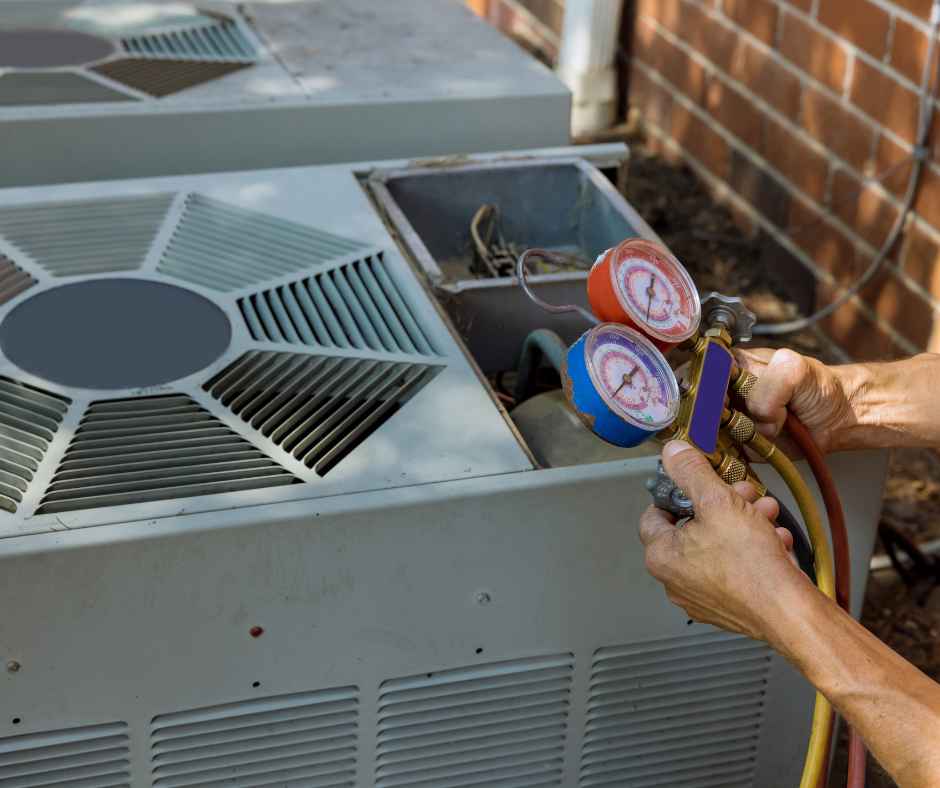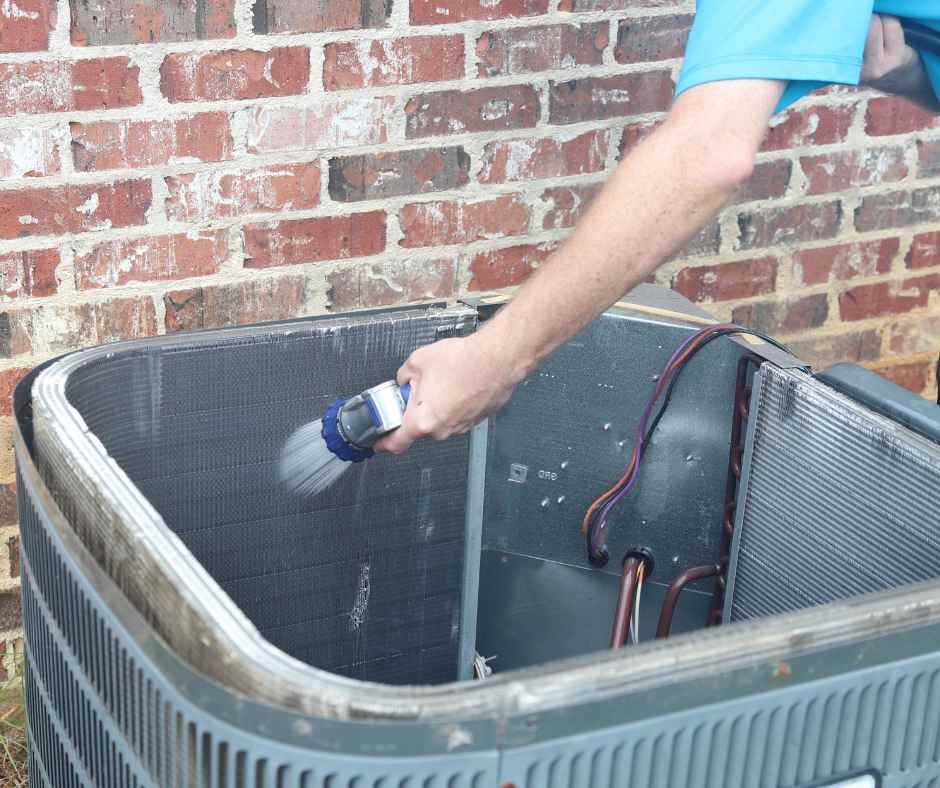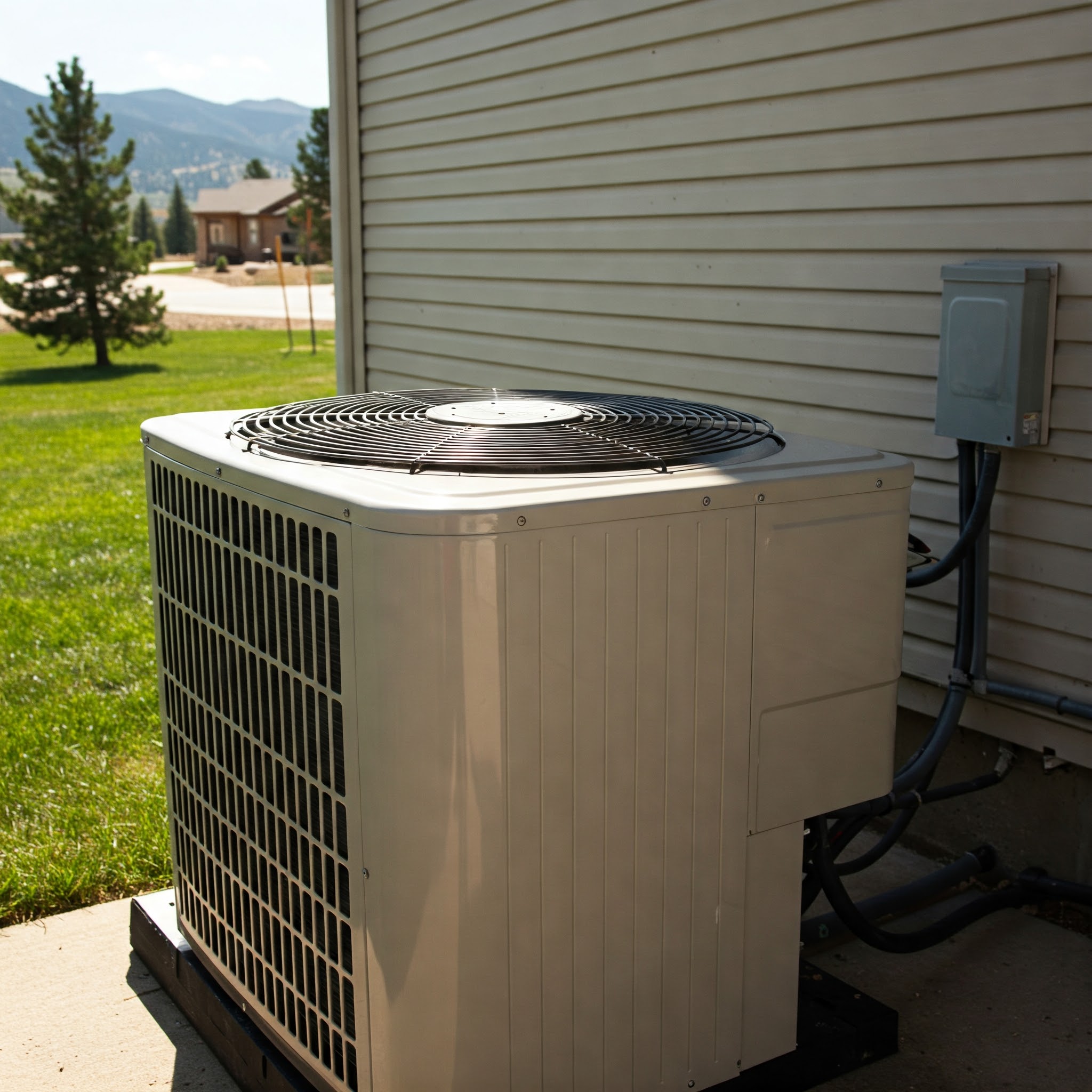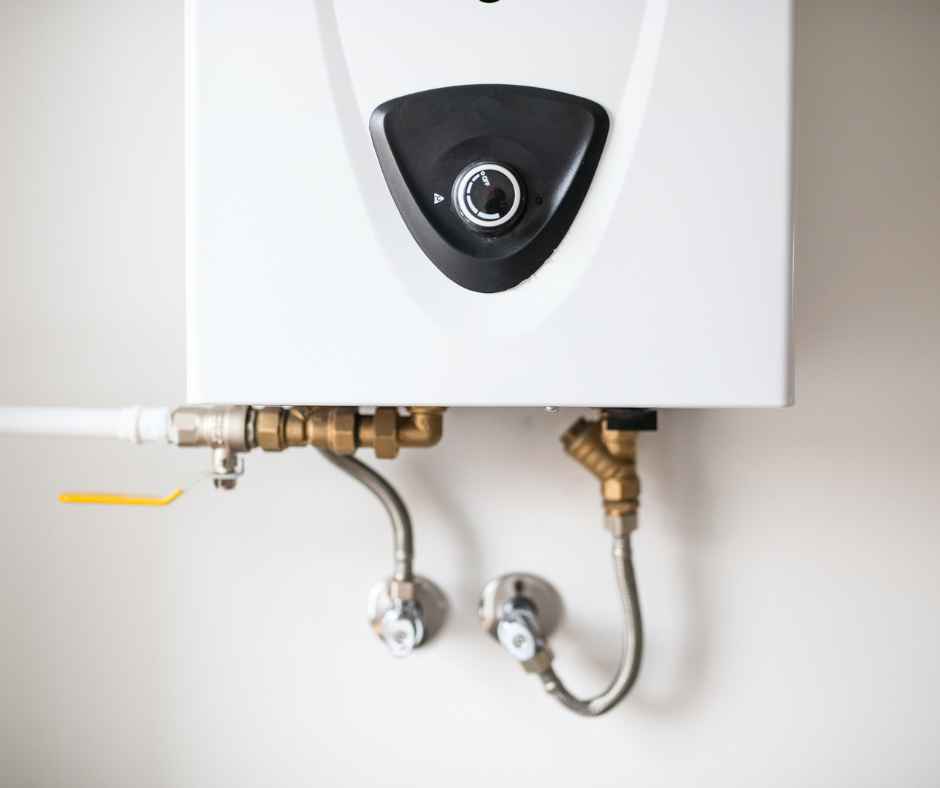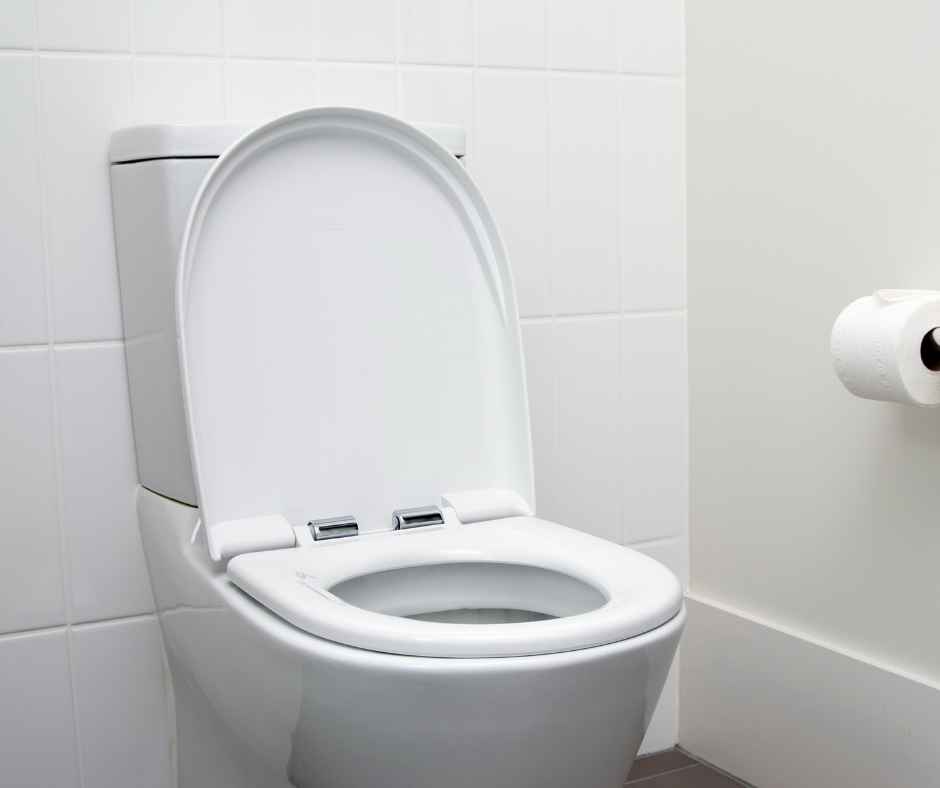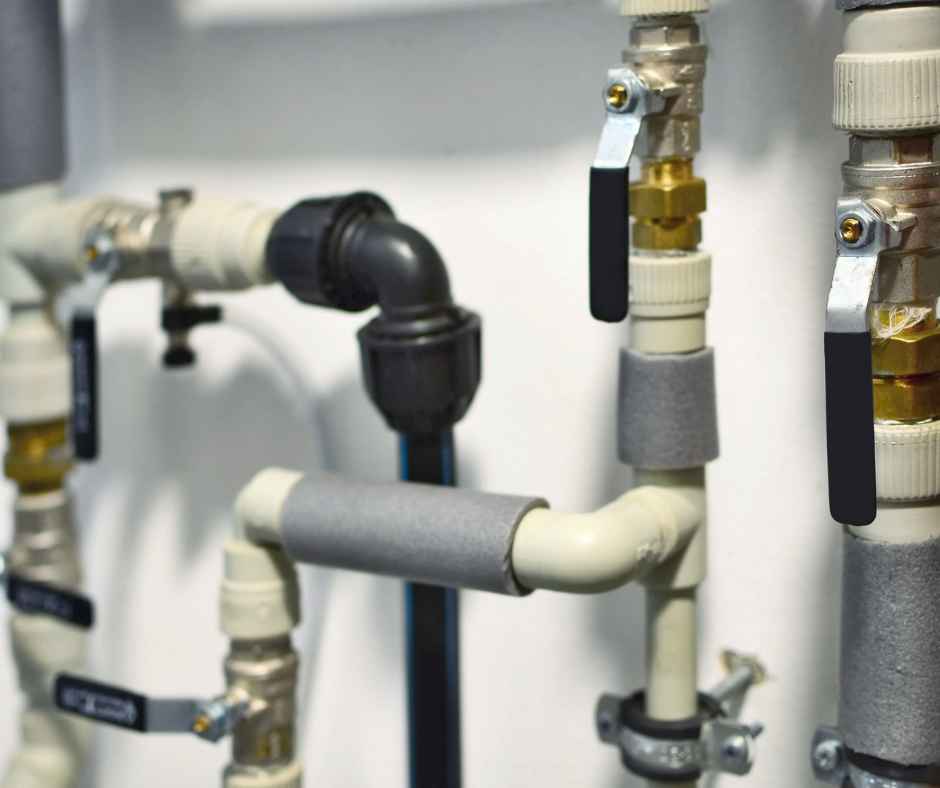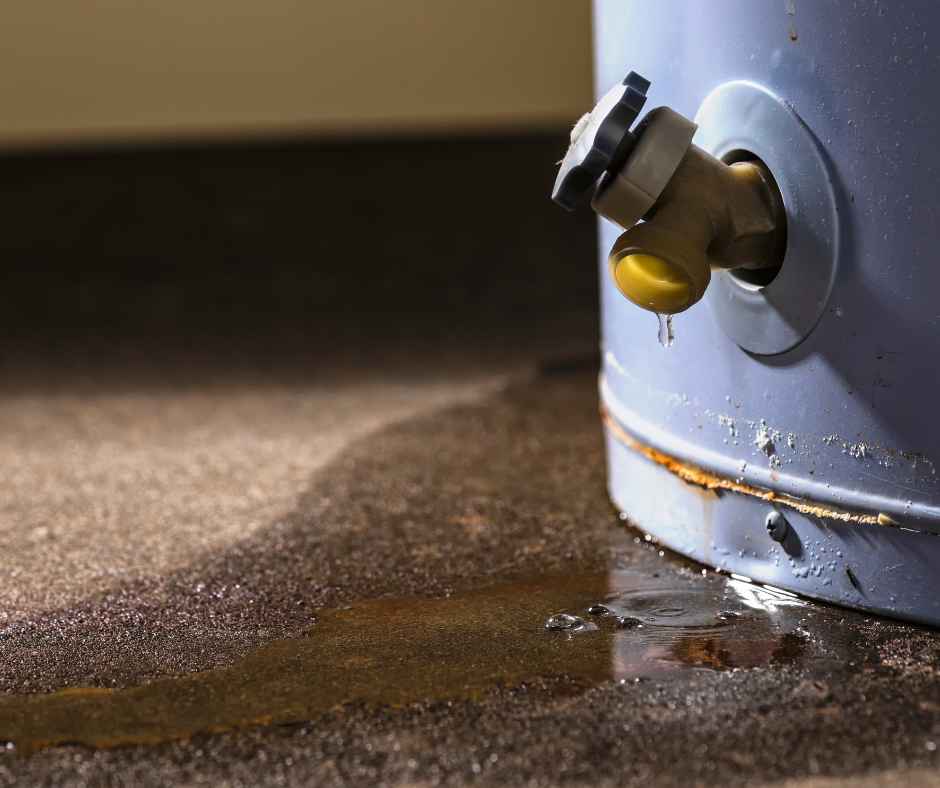Serving Douglas County & The Surrounding Areas

How Much Energy Does a Hot Water Heater Use?
Most home hot water heater use between 50-70 gallons of water. The average household uses 224 gallons of water per day, so a huge chunk of that is from simply taking a shower or running the faucets. But have you ever wondered how much energy your hot water heater uses? If you’re like most people, probably not. We set it and forget it, but it’s quite interesting (and important) to know!
How Much Energy Does a Water Heater Use?
Many people are surprised to learn that water heater energy-consumption is the second highest energy-consuming appliance in most homes, after the furnace. The average household spends about $400 a year on water heating, which accounts for about 14% of the home’s total energy. But how much energy does a hot water heater use?
The answer to that question depends on the type of water heater you have. The most common types of water heaters are conventional storage tank heaters, tankless (or “on-demand”) water heaters, solar water heaters, electric, and heat pump water heaters. Each type of water heater has its own unique operating characteristics that affect how much energy it uses.
Common Types of Water Heaters
One common hot water heater is a storage-tank water heater. It works by heating water in an insulated tank and storing it until it’s needed. The size of the tank will determine how much hot water you have available before needing to heat more. Storage tank water heaters typically use natural gas or electricity to heat water.
Another common type of hot water heater is a tankless, or on-demand, water heater. As the name suggests, these types of water heaters don’t have a storage tank; instead, they heat water only when you need it. They are considerably more efficient than storage tank models because they require energy when hot water is needed—not to maintain a reservoir of hot water at all times as storage tank models do. Tankless models are available in both gas and electric versions.
Conventional Storage Tank Water Heaters:
Conventional storage tank water heaters are by far the most common type of heater today. They come in a variety of sizes, but the most common size is the 40-gallon tank. These tanks are typically filled with hot water and insulated to help keep the water hot until it’s needed. When you turn on the hot water tap, cold water from the main supply line flows into the bottom of the tank and pushes the hot water out through a pipe to the tap.
Because these tanks need to keep a large volume of hot water constantly heated and ready for use, they tend to be very energy intensive. In fact, according to Energy Star, a 50-gallon conventional storage-tank water heater will use about $695 worth of electricity per year – more than any other appliance in your home!
Tankless (“On-Demand”) Water Heaters:
Tankless or “on-demand” water heaters, don’t have a storage tank; instead, they heat water only when you need it. That means there’s no wasted energy spent keeping a tank full of hot water constantly heated and ready for use. When you turn on the hot water tap, cold water flows through a pipe into the unit where it is then heated by either gas or electricity on demand. Because they don’t have to maintain a large volume of hot water constantly, these units are much more efficient than conventional storage tank units and can save you money on your energy bills.
In fact, according to Energy Star, a typical gas-fired tankless water heater can save you about $100 per year compared to an electric, storage tank model – and even more if you use propane or oil to heat your home. In fact, tankless water heaters can save homeowners up to 30% on their energy bills! The only downside to tankless water heaters is that they tend to be more expensive than other types of hot water heaters.
Solar Water Heaters:
Solar-powered water heaters rely on solar panels (known as Solar Thermal Collectors) mounted on your roof to absorb sunlight and convert it into thermal energy which is then used to heat your water. Because they rely on renewable solar energy to operate, these units are very efficient and can significantly reduce your energy costs.
In fact, according to Energy Star, solar-powered units can save you up to 80% compared to electric storage models – though initial costs can be high. Solar-powered units typically range in the high-end for water heaters once installed – but prices vary depending on location and project size/scope. Solar power rebates or tax credits may also be available in your area which could offset some of those costs.
Electric Tank Water Heaters
Electric tank water heaters store hot water in an insulated tank and use electricity to maintain the temperature of the stored hot water. These water heaters are less expensive than other types of hot water heaters, but they are also less efficient. Electric tank water heaters can save homeowners up to 10% on their energy bills.
The main downside to electric tank water heaters is that they have a higher risk of fire due to overheating. Always make sure to keep your water heater set to the recommended temperature and never let it go unmonitored for long periods of time.
Heat Pump Water Heaters:
Heat Pump Water Heaters (HPWHs) look like conventional storage units but work differently; they actually use very little electricity because they transfer thermal energy from one place to another instead of generating new heat. HPWHs work by pulling warmth from the surrounding air and transferring it into the water. They take advantage of ambient air temperatures which makes them 2-3 times more efficient than conventional electric storage models. In fact, Energy Star estimates that an HPWH will only cost about $265 per year to operate – making them one blowout deal when it comes to efficiency!
How Much Energy Does a Hot Water Heater Use?
According to Energy Star, the average family spends $400-$600 per year on their home’s energy bill, with nearly 18% of that going towards heating water. The Department of Energy estimates that anywhere from 24-34% of the average home’s energy usage goes towards heating water. That number will obviously be higher in homes with larger families who use more hot water on a daily basis.
For gas-fired storage tank models, the cost will depend on the unit’s efficiency as well as the price of natural gas in your area. For electric models, the biggest factor will be what your kWh rate is from your local utility company since they all charge different rates. In general, though, electric models tend to be 2-3 times as expensive to operate as gas models.
Tankless gas models are also about 2-3 times as expensive to operate as electric ones; however, they are considerably more efficient overall since they only heat water when you need it rather than constantly maintaining a warm reserve like storage tank models do. In terms of initial purchase cost, though, tankless models tend to be about twice as expensive as storage tank ones—albeit with much shorter payback periods thanks to their increased efficiency over time.
How Much Electricity Does a Hot Water Heater Use?
The average hot water heater consumes around 5,000 watts of electricity. This varies depending on the size of the water heater and the age of the appliance. However, this is a good estimate to use when calculating your home’s energy usage.
To calculate the cost of running your hot water heater, simply multiply the number of watts it uses by the cost of electricity per kilowatt hour. For example, if your water heater uses 5,000 watts and your electricity costs $0.10 per kilowatt hour, then it costs $0.50 per hour to run your water heater.
If you use your hot water heater for an hour each day, then it costs $0.50 per day to operate. This comes out to $15 per month or $180 per year. These are just rough estimates, but they can give you a good idea of the cost of running a hot water heater in your home.
If you are looking to save money on your energy bill, consider turning down the temperature on your hot water heater. You can typically save around 3-5% on your energy bill for every 10 degrees that you lower the temperature. So, if you lower the temperature from 140 degrees to 120 degrees, you could save up to $54 per year on your energy bill.
How Much Gas Does a Hot Water Heater Use?
The cost of operating a gas hot water heater depends on a number of factors, including the price of natural gas, the size, and age of the hot water heater, and how often it is used. To get a rough estimate of the cost, we can use this formula:
Cost = (Size in kW) x (Number of Hours Used per Day) x (Price per kWh)
For example, if your gas hot water heater is 10 kW and you use it for 4 hours each day, the cost would be:
Cost = (10 kW) x (4 hours/day) x ($0.10/kWh)
Cost = $0.40/day or $12.00/month
Similarly, if your gas hot water heater is 20 kW and you use it for 3 hours each day, the cost would be:
Cost = (20 kW) x (3 hours/day) x ($0.10/kWh)
Cost = $0.60/day or $18.00/month
Most gas hot water heaters use between 20-50 therms of gas per month. A therm is a unit of measurement for natural gas and is equivalent to 100,000 BTUs. So, if you have a gas hot water heater, it’s likely using around 2,000-5,000 BTUs per hour.
As you can see, the cost of operating a gas hot water heater can vary depending on its size and how often it’s used. But, on average, you can expect to pay around $12-$18 per month to keep your gas hot water heater running.
Are There More Efficient Hot Water Heaters?
Yes! There are a few different types of more efficient hot water heaters on the market these days. tankless or demand-type water heaters only heat water when you need it, so they can save quite a bit of energy compared to storage tank water heaters.
Solar water heaters are also a great option if you’re looking for an efficient and environmentally friendly way to heat your water. Solar water heaters use the sun’s energy to heat water, so they can save you a significant amount of money on your energy bill each month.
If you’re looking for a more efficient hot water heater, be sure to do your research to find the best option for your home and needs. You may be surprised at how much money you can save by switching to a more efficient model!
How to Keep Your Energy Bills Down
Use a lower temperature setting on your hot water heater
The right temperature is crucial for many things, like keeping your coffee hot and avoiding scalding. But what if you have a low-flow shower head? 120 degrees will do just fine!
In most places around this country we’re accustomed to running our taps at 140°F or higher because that’s how they were set when the pipes were installed long ago – but don’t forget about those who may be less fortunate than us with regards to their water supply:120 degree setting would still provide plenty of cleanliness without risking any burns from too much warmth. A lower setting will also help to conserve energy and save you some money on your electric or gas bill each month.
Change your shower habits
If you have a tendency to take long showers, try making them shorter. You can also save water (and money) by showering less often. The shower is a time for relaxation and luxury, but it can also be used as an opportunity to save water. A recent study found that when people took shorter baths in the winter months their usage went down because they only washed with soap while shampooing or brushing their teeth- hardly enough moisture! So before you get ready after work try turning off your faucet while cleaning yourself up; then restore its flow again when done washing hair etc., this way we all win – except maybe those who like long leisurely sessions without interruption 🙂
Install low-flow faucets
If you want to save money on your utility bills, install low-flow faucets and shower heads. The less water that flows through these fixtures per minute means lower heating needs for operation which ultimately saves energy!”
Consider the right size tank for your family and insulate it
Have you ever considered the size of your water heater? What’s recommended by The Department Of Energy is to have one that can handle an average household’ busy hour, but not so large as it wastes energy heating unused gallons. With this in mind check out their guide on sizing tanks for new ones- they’ll calculate how many are needed per day and recommend models with matching first hours ratings too! An insulation blanket cheap enough even though its only purpose may just be keeping heat from escaping while filling up at night time
Check your local utility company for incentives on new water heaters
Some utility companies offer incentives for customers who switch to more efficient water heaters. Be sure to check with your local utility company to see if there are any programs available that could help you save money on the purchase of a new water heater.
Clean or replace your air filter regularly
A clogged air filter can cause your water heater to work harder than necessary to maintain the desired temperature. Be sure to clean or replace your air filter regularly to keep your water heater operating at peak efficiency.
Seal any leaks around your home
Leaks can waste a lot of water and energy. Be sure to seal any leaks around your home to help conserve resources and save money on your utility bills.
One of the best ways to keep your energy bills down is to make sure that your home is as draft-free as possible. Draughts can cause your heating and cooling system to work harder than necessary, which can lead to higher energy bills.
To prevent draughts, be sure to seal all of the doors and windows in your home with weatherstripping or caulk. You can also install door sweeps and window insulation kits to keep the cold air out.
Insulate your pipes
If you live in an area with cold winters, insulating your pipes can help prevent them from freezing and bursting. Pipe insulation is relatively inexpensive and easy to install, so it’s a great way to save money on your utility bills each month.
Install a programmable thermostat to control your hot water heater’s temperature
By regulating the temperature of your hot water heater with a programmable thermostat, you can reduce wastage and save money on your energy bill each month. Water heaters account for a significant amount of energy use in the average American household. In fact, water heaters are the second largest consumers of energy in the home, right after the refrigerator. While many people are not aware of it, there are ways to save energy when it comes to water heating. One way to do this is by installing a programmable thermostat to control your hot water heater’s temperature.
Programmable thermostat
A programmable thermostat is an electronic device that allows you to control the temperature of your home’s heating and cooling system. You can set it to automatically adjust the temperature at different times of the day or week. This can help you save money on your energy bill, since you can have the thermostat adjust the temperature when you’re not home or when you’re asleep.
Programmable thermostats are available for both heating and cooling systems, but today we will focus on how they can be used to save energy with water heaters. A programmable thermostat can be set to maintain a constant temperature for your hot water heater. This will help ensure that the water is not heated more than necessary, which can save you money on your energy bill.
Another benefit of using a programmable thermostat with your hot water heater is that you can easily adjust the temperature according to your needs. If you need hotter water for a bath or shower, you can easily raise the temperature setting on the thermostat. If you don’t need as much hot water, you can lower the setting and save even more energy.
Installing a programmable thermostat is an easy way to save energy and money when it comes to your hot water heater. They are affordable and easy to use, and they can help you conserve energy and reduce your monthly utility bills.
Educate your family and roommates about conserving energy
One of the best ways to conserve energy is to educate your family and roommates about it. Show them how easy it is to save water and electricity, and explain how it can save you money each month.
When everyone in your household is on board with conserving energy, it will be much easier to lower your utility bills. Plus, you’ll all be doing your part to help the environment!
By following these tips, you can save money on your energy bills each month. Just remember that even small changes can add up to big savings over time! So, don’t be afraid to start making some changes in your home today.
In Conclusion:
So how much does it cost to operate a typical 40-gallon natural gas storage model will eat up about $120 per year while an electric model will set you back closer to $400 annually. That same 40 – gallon gas unit will only cost around half as much to operate If you go with an HPWH.
And if you’re really looking to save some serious cash, think about going solar; These systems require little maintenance once installed, plus they could cut your annual operating costs down to pennies on -the -dollar! No matter what type of hot heater you choose, researching before purchasing a model can really pay off down the road!
So how much does YOUR hot water heater cost you each month? And how does that compare to other types of hot water heaters? The answer may surprise (or worry) you! Be sure to keep these estimates in mind next time you’re considering upgrading your old unit—it could end up saving you a lot of money (and headaches) in the long run.

